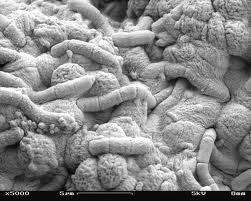Are you impressed with your smartphone’s elegant design? Do you like Apple’s seemingly endless App store and the BlackBerry 10 multi-tasking interface? There is more to come: in just a few years, smartphones might not only be able to provide communication and information on the go, but also contribute to your personal healthcare.
Personal healthcare, you might wonder? What do smartphones have to do with your health? Few people are aware of the fact that while we sure like to keep our smartphones as close to us as possible, this might not always be the smartest and certainly not the cleanest decision.
Scientists have found out that it is very likely that your mobile phone actually contains more bacteria than a public toilet seat. This might sounds shocking at first – but considering the fact that our smartphones follow us wherever we go, this shouldn’t surprise us too much.
Germs thrive in warm places, and smartphones are not only generating heat but also usually kept in fairly warm environments: next to our mouth, in our pockets, or in our hands. The typical phone carries more bacteria than a regular office, and about 30 percent of all bacteria on phones eventually end up on the phone’s owner, transferred by touch. The use of smartphones in public spaces is facilitating our taking in of other peoples’ germs, and those can cause diseases like flu or diarrhoea.
Sure, you can clean your smartphone screen, wiping it off with antibacterial wipes. But cleaning products can fail to remove all bacteria – and they might also cause damage to sensitive touchscreens. Usually, alcohol is still your best bet to get rid of bacteria – but this is not an ideal solution either.
But don’t worry – there is hope. One company is working on a ground-breaking new antibacterial smartphone that could hit the market in just a few years. It is the very same company that is responsible for the protective Gorilla glass screen found on many smartphones today –Corning. They are developing an anti-bacterial glass cover that would not only keep away microbes but actually destroy them too. It leads to a reduction in the number of bacteria on anti-microbial glass over time, with a strong decrease within the first 30 minutes already.
When Jeffrey Everson of Corning revealed the newest innovations the company is working on, he said, “Corning is working to invent a cover glass that can kill both drug-resistant bacteria and drug-resistant viruses.” Originally intended for the healthcare industry, they realised that the market for anti-microbial glass is significantly bigger than just the healthcare sector.

